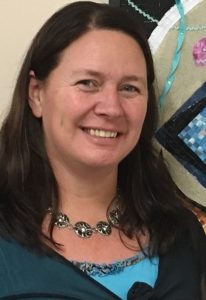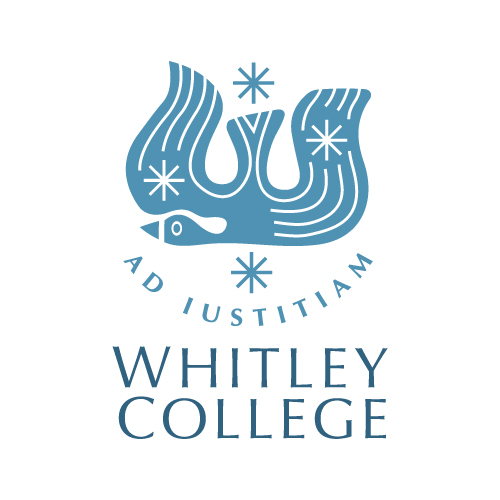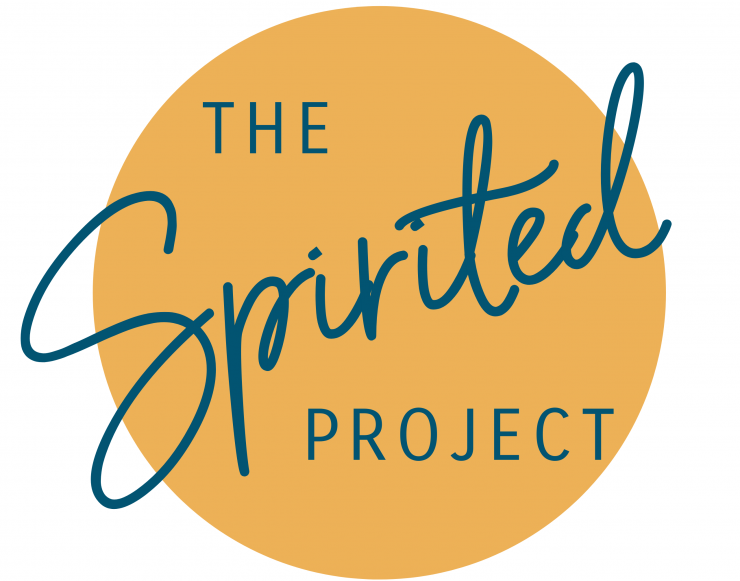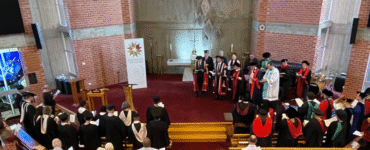Rev Cathie Lambert is in the final stages of her PhD candidature at the University of Divinity. VOX spoke with Cathie to ask about her theological aspirations, her plans for post-doctoral research, and her new role in The Spirited Project.

Q: Cathie, in March 2020, VOX ran a short piece about your being the recipient of the Jan Gray PhD Scholarship for 2020. In that article you said that after completing your PhD, you had “no idea exactly what ‘s around the corner”. Well, here we are “around the corner”, so can you tell us what’s happening for you right now?
I always knew that I would continue my work in spiritual direction and teaching with the Dayspring Spiritual Direction program in Perth, but this took only a fraction of my time. I submitted my thesis in mid-December last year and knew that completing my PhD would leave the space for the next chapter. I hoped that this would involve more teaching or research of some kind. So, it is a joy to report that in the coming semester I am co-teaching a unit for Pilgrim with my PhD supervisor, Professor Katharine Massam and I have also started my role as the administrator for The Spirited Research Project.
Q: What can you tell us about The Spirited Project and what about it interests you in particular?
The Spirited Project is exploring how family and friends of people living with dementia can best provide spiritual care for their loved ones. The team are drawing on the expertise of professionals both in Australia and the UK before listening to the needs of the family and friends. The hope is to develop evidence-based resources to give family and friends confidence in providing spiritual care to those they love.
When I saw the advertisement for the position two things caught my interest. Firstly, my real passion in ministry is spiritual care. It is such a privilege to accompany people on their walk with God and share in their stories, challenges and growth. So, the aspect of spiritual care captured me straight away. The fact that the project aims to benefit people living with dementia also interested me. I have no expertise in the science of dementia or how best to care for people living with it, but I have observed people in my family and ministry navigating how best to live with the reality of dementia. I have witnessed people with dementia at the funerals of their spouses coming alive at the sound of a familiar song or the sparkle in their eyes as a well-known Scripture is read. So, The Spirited Project brings together my area of passion with a topic of curiosity from my own ministry practice.
Q: How does your own PhD study inform, if at all, your approach to The Spirited Project?
My doctoral research involved working with contemporary women who considered themselves on the edge of the institutional church. These women, who earlier in their lives had seen the church as significant in their lives, now struggled with the language, symbolism and theology of their institutional church. The women were finding new ways to express their faith and find meaningful connections.
I am guessing that for people living with dementia there is a similar need. For me, questions arise around the place of tradition, how best to create meaningful connections and how loved ones can be present and accompany those living with dementia. The Spirited Project is exploring these questions and more. So, although the context is very different to my PhD focus, I feel the core desire is the same – to find ways to best accompany people on their spiritual journey in whatever situation they find themselves.
Q: What’s especially valuable about being involved in The Spirited Project team for you as an early career researcher?
There are two aspects that I am already finding valuable. Firstly, there is the privilege of being a close observer of a research project other than my own PhD that involves different research methods. I am already gaining so much from working alongside experienced researchers and learning from the team.
But possibly more valuable is the encouragement and support the team has already shown. From the start it has been clear that the team do not only view me as the administrator of the project, but endeavour to provide opportunities to help me develop as an early career researcher. The team have shown interest in my PhD topic and the experience I have already gained, while talking with me about possibilities within the project which will assist me to continue creating my profile as an early career researcher. I have sensed, from my interview for the position onward, that the team are not only concerned about what I can offer the project, but also what I can gain from the experience. I am extremely grateful for their generosity.
Q: Readers of VOX might know that The Spirited Project would not have been possible without the Extraordinary Large Grant awarded to the Project by the University of Divinity. However, as a former recipient of the Jan Gray PhD scholarship, and now a beneficiary of a research grant, how easy is it for you to be objective about the value of the University as a place to pursue theological study and research?
I certainly do not take the position I find myself in for granted. I was very fortunate to be awarded the Jan Gray Scholarship for the latter part of my PhD. Much of the first half of my PhD candidature was spent trying to secure funds to pursue my passion. I was grateful to secure grants from smaller funds to sustain me financially. I recall, however, the shift in energy when I could fully concentrate on completing my thesis. It was passion and energy for the research project that enabled me to persevere through the first two years. I am thankful that others, like Jan Gray, also had that passion and have now empowered others to follow this path.
The fact that I now have the privilege of working on another project that has been awarded a research grant demonstrates the importance of this research. I am grateful for the vision of the team in identifying this need for people living with dementia. As a beneficiary of these scholarships and grants I take on the responsibility to contribute in any way I can to the wider University and its goals. And, who knows, one day I may be able to encourage the next generation of theologians and researchers in a similar way to how I have been supported.
Q: Thanks Cathie. One final question, ‘Do you have any idea of what might be “around the next corner” after The Spirited Project?’
No, not really, but I am content with the unknown. I have been fortunate that this door has opened for me with The Spirited Project. I am looking forward to learning new skills and gaining new connections while working with this Research Team. Who knows what this work is preparing me for? If I was able to engage in other meaningful research projects or have the opportunity to teach, I would be extremely grateful.

Whitley College is a college of the University of Divinity from the Baptist tradition, based in Melbourne, Victoria.







Add comment